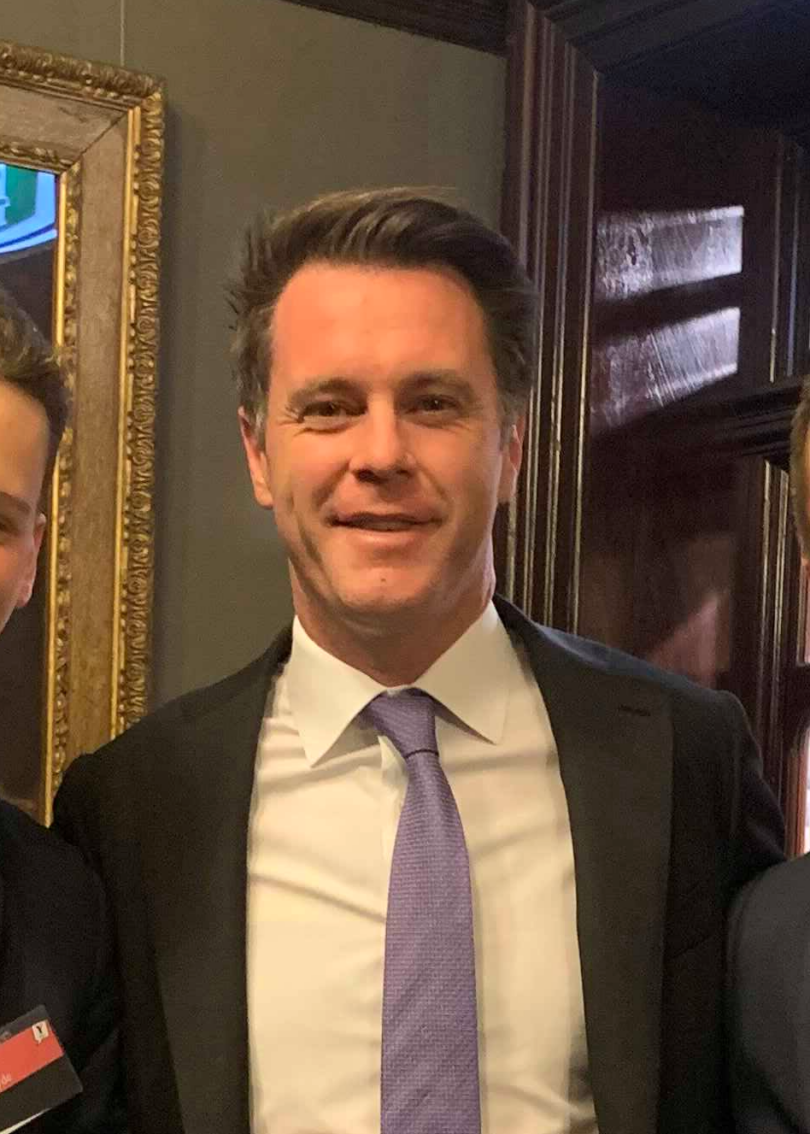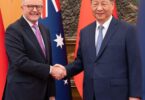NSW PREMIERS REMARKS AT POLICE ASSOCIATION OF NEW SOUTH WALES 2024 BIENNIAL CONFERENCE OPENING
I acknowledge the Dharawal people and pay my respects to traditional owners.
Can I also acknowledge some of my fellow attendees today:
The Commissioner of Police, Karen Webb.
The leaders of the Police Association: Kevin, Ian Allwood, Rodger Campton and Pat Gooley, the executive and retired members.
The Minister for Police, Yasmin Catley, Parliamentary Secretary for Police, Edmond Atalla, as well as Mark Speakman.
Officers, I wanted to be here today, with you in person, to show you my support as Premier of New South Wales and also to give you an overview of the agenda for policing in New South Wales.
Police have been through a lot in the last few months.
And before I begin today, I want to thank all of you for how you conducted yourself in exemplary fashion during that period. You were called on. You were tested. And everybody stood up.
As a police force, you were brave; and showed principles of compassion and professionalism and that made this state very proud.
One of the things about being Premier of New South Wales is that you do mix with police officers a lot, whether it’s the skilled professionals in my personal security team, or friends and family members who’ve decided to become police officers in New South Wales, or senior members of the executive of the New South Wales Police Force.
And one of the things that you learn having spoken to career officers in the New South Wales Police is that it puts your own job in perspective.
It’s a difficult, difficult profession.
It’s difficult every single day of the week, and police officers don’t know what they’ll confront when they leave home to do their job.
A second lesson you’ll learn very quickly, is just how central the rule of law is to a good society.
At times, people may take it for granted and of course, I take on board everything that Kevin said in his opening address.
But it doesn’t take much for chaos to remind us all just how essential that order is to our lives and to our families and for commerce and business, and for the economy of this state.
Tragically – we’ve just lived through one of these periods.
The attack in Bondi Junction, the riots at Wakeley, and a string of violent stabbings across the state.
Those events have shaken the state of New South Wales.
And it’s in those moments – when we feel threatened, or vulnerable, or frightened – that we turn to New South Wales Police for safety.
I think we all felt like that on April 13, when we heard the terrible news coming out of the supermarket at Bondi Junction.
There was danger; there was chaos; and instinctively the citizens of this state looked for protection.
Can I just say, it came in the form of Police Inspector Amy Scott. And Inspector Scott has been rightly labelled a hero.
She was calm, decisive, and as a result she saved many lives.
I think as an example, she gives us all an example of what we ask of our police, many of whom are young, to walk into terrible situations as an ordinary part of their job.
And if there was an emergency tomorrow, we’d ask them to do it all over again.
Because the truth is, we don’t have a choice.
The least we can do is say thank you and acknowledge that bravery and that service on behalf of the state.
Officers saw this again a few days later in Wakeley.
It was a terrible crime, in a house of worship.
And in the aftermath, completely unacceptable acts of violence and rioting was directed at New South Wales Police.
They were ugly scenes; and it was a tinder box waiting to go up.
Again in that situation, New South Wales Police, under intense pressure, held their nerve.
They did their job with patience and professionalism and a great deal of courage. And I suppose some of the officers who were injured as a result of that rioting, all of whom were back on the job the next morning.
And because of that – you began to lower the temperature in our community; making sure that spark didn’t ignite into serious social unrest.
It may have gone unremarked in the broader media or in the public commentary, but it didn’t go unremarked by the government.
Something I want to say before we get to any of the policy issues is that of course, we appreciate the New South Wales Police and society wouldn’t be what we are without you.
We understand how difficult this job is, it’s not comparable to any line of work elsewhere in government.
It’s complex work, it’s difficult work. It often involves split-second decisions that police officers know may be examined in great detail over months, in the weeks ahead.
But we need it every single day.
Which is why we want to support the critical work, by recruiting new police officers to help the existing workforce do the job safely and successfully.
When we came into office in March last year, there were hundreds and hundreds of police vacancies across the state.
I know a lot of you were feeling stretched and overworked, watching more and more colleagues leave the job, without new recruits coming in to fill their positions.
Reversing that drain is an absolute priority for our government.
That’s why we listened to the Police Association and introduced a new payment for recruits at the Goulburn Academy.
As you’ve probably heard – they will receive just over $30,000 for the four months of training.
We know there were people out there who were keen to retrain into the profession of policing, but they had families, they may have had existing work.
They couldn’t afford the time off to retrain as a police officer in this state and my hope is, and I think early indications are, that it is making a big difference. That’s why we introduced the payments.
And I’m very happy to say, it appears to be working.
Since that announcement, we’ve received 1235 applications to train in the New South Wales Police Force.
That’s a 26% increase on last year.
And at the Goulburn Academy, recruiting class 364 is now at maximum capacity.
So we’ve got grounds for confidence here, but not enough to be complacent.
Last week, we announced two further recruitment strategies.
Again, backed in by the Police Association, I know in some cases, years and years of work and advocacy on behalf of the executive calling for exactly these changes.
The first is our experienced officers recruitment scheme – encouraging police from other states and New Zealand to jump ship and join the New South Wales.
This is a bit like how the All Blacks have operated for a long time – poaching talent from rugby league clubs.
But we’re going to do it in reverse – paying for new training, while letting them stay at their equivalent rank.
So if you’ve got other friends in other police forces, or at the federal level, let them know that there’s opportunities in this wonderful police force, the biggest in the country.
The second new strategy is our program to help cops stay in their hometown, particularly in regional New South Wales, if that is where they want to serve.
This will give officers from regional New South Wales the opportunity to request a return to home, or to a nearby community.
Again, crucial for that mid career change that we’d like to see for new New South Wales police recruits.
All of these policies are designed to expand our police ranks; to reinforce your work on the frontlines. To let you know that there is an army coming up behind you ready to support and work with you every single day of the week.
We’re conscious that there are specific areas of policing which require extra attention.
One of those is domestic and family violence.
As Kevin outlined in his opening address, I know this takes up an enormous amount of time and attention.
Something like 60 percent of police time is dedicated to these domestic disputes.
It is distressing – and it’s distressing on the workforce as well. And seeing, in some instances, cowardly acts; often perpetrated against women and children.
With women and children living in fear, in places where they should feel the safest, which is the home.
We ask you to go into these situations – as law enforcers, as peacekeepers, as social workers on the doorstep.
In many cases you’re the final line of defence – but you shouldn’t have to be.
We need to be better at preventing these situations from occurring in the first place.
And when they do occur, we need to make sure that violent offenders are separated from the women and children they are terrorising.
What we announced our $230 million as package for domestic violence earlier this month.
Firstly, with primary prevention – stopping destructive attitudes from developing in the first place.
Secondly, with early intervention – so when a situation becomes dangerous, we can step in.
And thirdly, with housing and other crisis support – so women and children can feel confident leaving these situations.
All of us were shocked at the death of Molly Ticehurst.
No woman should ever face that kind of terror.
And as I’ve said, it was a failure of our system.
It’s why we’ve also announced major changes to our bail laws in the state – so fewer high-risk offenders are out free in the community.
The truth is, we can’t police our way out of domestic violence.
You do what you can, in extremely difficult circumstances.
But we hope that these changes will result in less of those call outs – and greater safety for vulnerable people in our community.
Another area of focus for us is reducing knife crime in the state.
Recent events have highlighted the persistent danger that knives pose to community safety.
This isn’t breaking news for New South Wales police officers.
I’m aware of the work that’s been done for a long time, including the recent success of Operation Foil.
But there is more we can do to support you here – and I hope our newly proposed laws will do exactly that.
Those laws will give you new wanding powers, without the reasonable suspicion that you previously needed, where it’s required.
We know this has already worked in Queensland.
In the first year of operation, more than 500 weapons were taken out of circulation.
We’d love to see the same result in New South Wales.
Fewer knives on the streets; less senseless violence in our communities; and fewer lives being lost.
Only this weekend, we saw the terrible stabbing of Police Constable Elvis Poa.
Elvis was doing his job.
He was serving his community.
And as he said yesterday – it’s what he was trained to do.
It’s another reason to support these new powers – to protect our police on the job, every single day of the year.
The last area I want to touch on today is situation with pay and conditions for the Police Force.
I’m sure you’re all aware that we’ve come through twelve years of pay suppression in this state.
The wages cap in our view, was a burden on working families in New South Wales.
We said we would get rid of it – I said get rid of it at this conference two years ago – and that is what we did.
If previous police ministers were happy to watch essential workers go backwards, those days are over.
You now have a police minister, in the Cabinet Room, in Parliament, behind closed doors, and anywhere where she is asked, will be fighting for you.
Yasmin and I share a big agenda for this year:
We want to massively boost police recruitment.
We want to stem the flow of experienced police leaving the job.
We recognize the nexus of communication between a senior police officer who’s been on the job for decades, taking under his or her wing, a new recruit so they can learn the ways of the New South Wales Police Force that a textbook or even an extensive stint at the Goulburn Academy won’t give them.
Finally, we want to deliver a proper and fair pay rises – one that you’ve been waiting a long time for.
We also want to fix the problems of concessional superannuation tax that is unfairly punishing so many of your members.
On the last point, super and tax are clearly federal government issues.
But I can assure you we are working with federal Ministers, even at the highest level, to rid of you of this ridiculous burden.
I also acknowledge the fierce advocacy of the Police Association on this matter over the many years.
The Commonwealth tells us they’re happy to act here.
That announcement must come as soon as possible.
The Federal Government needs to come to the table with the solution that will work for the Police Association, so that we can make this happen.
Half-hearted fixes, temporary compensation, it’s just not good enough. We’ve had that in the past and it hasn’t made the difference that we need.
We want this issue resolved, for good, within the next few months.
Finally – when it comes to pay, we are equally determined to repair and reverse the damage of the wages cap over the last twelve years in New South Wales.
Award negotiations are underway and they have been respectful and productive.
In the next few months, I want to see a new agreement – with a real boost in pay and conditions that New South Wales Police deserve.
We know that these negotiations can take time, but whenever an agreement is reached, I’ll ensure that it’s backdated to the first pay packet of the coming financial year.
I will end on that note.
But I think it’s important that you know how hard your union fights for you and on behalf of the police in this state.
All of us get calls from the Police Association leaders at all hours of the day and night.
Sometimes they give us very direct feedback on the issues that matter to you.
But they’ve also been a great source of advice to me and Minister Catley, we rely on them.
Helping us understand the concerns of the frontline workers in police; informing us of new developments on the ground; what’s been happening in other jurisdictions, what’s been tried before and failed, what’s worthy of a new initiative to bring forward in New South Wales.
And I can assure you that initiatives that we do pursue in this state, we speak very closely with the leadership of the Police Association about.
I’ve listened to Kevin’s message about mission creep this morning – about all those extra jobs you take on; all of the individual uniforms that you wear – and of course I will discuss it with my Ministers as soon as I see them.
I want to thank the Police Association.
And most importantly I want to thank the police officers of this great state.
You do the uniform proud.
You do this state proud.
And it’s an honour to work with you as the Premier of this state.







